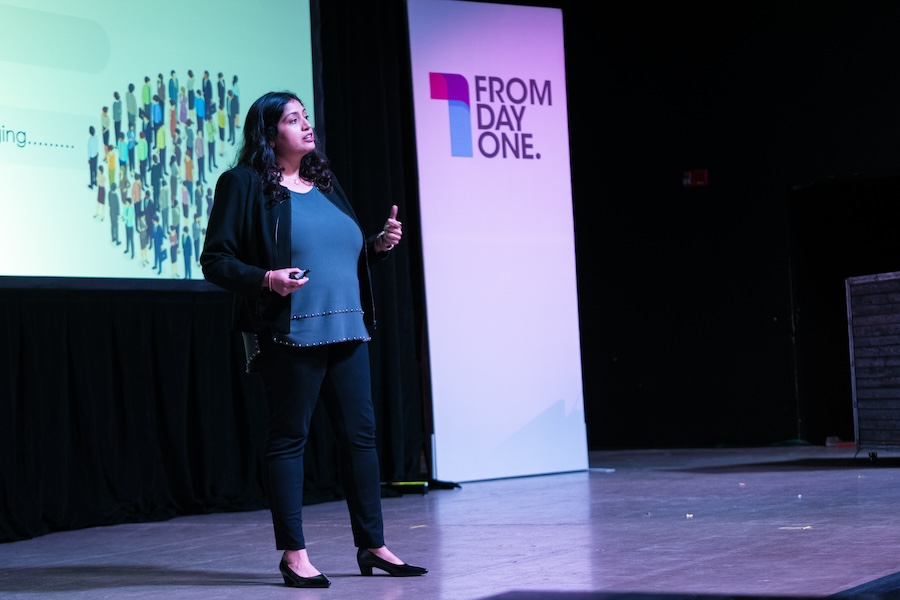Belonging for Everyone: Reimagine the Future of DEI


Without taking diversity, equity, inclusion and belonging (DEIB) training seriously, workplace inclusion will not improve. Cultural bias could corrupt the company, making it unsafe and undesirable for minorities in certain roles within a company. Companies deciding that DEIB is unimportant could see higher turnover rates than their competitors who utilize this training to support and accept their employees without judgment.
At From Day One’s Dallas conference, Renu Sachdeva, head of client solutions at Talking Talent, North America, spoke to the importance of DEIB training in the workplace, especially in the midst of pushback.
For Sachdeva, pushing work around DEIB forward is a driving point each and every day. She shared the story of Botham Jean, who was murdered by an off-duty police officer in 2018. Botham, who went by Bo, was a colleague of Sachdeva. Bo’s murder drew attention to racial biases, being that he was an unarmed Black man, killed in his own home.
“Bo is a huge part of why this work continues to be so important to me today,” said Sachdeva.
Despite the recent positive steps forward in diversity, equity, inclusion, and belonging, there are still many hurdles to jump over to reach the end goal, says Sachdeva.
Many business leaders are already seeing budget cuts and reluctance to these initiatives. But this training is vital to understand the significance of inclusion for the long-term success of companies. Additionally, more workers consider it table stakes when considering a place to work.

“94% of people in a survey said that it is very or somewhat important to them to feel a sense of belonging in the workplace. And yet 75% have said that they felt excluded in some way,” said Sachdeva. With a percentage so high, why would a company not want DEIB training within their organization? Satisfied employees means more productivity and higher retention rates.
Talking Talent’s approach to DEIB is rooted in two beliefs. First, diversity, equity, inclusion, and belonging is for everyone. Second, you have to fix the culture.
Saying DEIB is for everyone means that no particular ethnic group or cultural background is excluded from the conversation. It should be at the forefront of the employee lifecycle, and practice in recruiting efforts, onboarding, and performance reviews. Rather than offering training as a one-time solution, it should be an integral aspect of the overall employee experience.
Inclusive leadership and allyship training for current and future leaders ensures that each leader has the necessary skills to invite diversity and inclusion into the company. Sachdeva says that employees who get promoted may have exceptional technical skills, which is why they get promoted in the first place. Yet, they have not gained the managerial skills to foster inclusion and guide people underneath them as a strong leader.
Each organization has its unique risks if effective inclusion is not a priority. Pushing the work around DEIB forward is a necessity, and can propel engagement and success, says Sachdeva.
Editor's note: From Day One thanks our partner, Talking Talent, for sponsoring this thought leadership spotlight.
Mary Jones is a freelance writer out of Ohio. Her work is featured in several publications including The Dallas Express, NDash, and The Daily Advocate.
The From Day One Newsletter is a monthly roundup of articles, features, and editorials on innovative ways for companies to forge stronger relationships with their employees, customers, and communities.